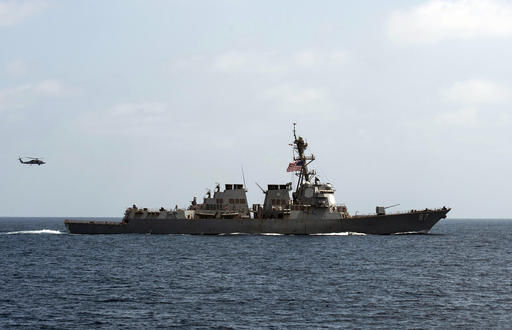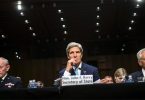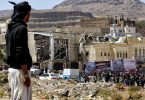
The strategic stakes of the war in Yemen became crystal clear last week when missiles were fired from Yemen at a U.S. warship in the very narrow international waters of the Red Sea, prompting a retaliatory U.S. cruise missile attack on radar sites that controlled the attack.
While the Navy has remained silent about the type of missiles used in the attack and there has been no verification of the identity of the attackers, the available facts point to an increased Iranian involvement in the very messy Yemeni civil war, where rebels backed by Tehran have recently fired missiles into Saudi Arabia.
Iran’s interest in the conflict, and its bearing on control of the narrow sea passage from the Indian Ocean to the Red Sea, a major international waterway, was underlined after the attack by the arrival of Iranian naval vessels in the area.
Independent analysts cited by the U.S. Naval Institute say that the missiles were most likely a Chinese anti-shipping cruise missile of a type known to be in the Iranian arsenal but not among the armaments available in Yemen before the civil war.
A similar missile was used by Iran’s proxy agent Hezbollah in Lebanon to attack an Israeli naval vessel in the Mediterranean, and one appears to have struck a civilian cargo ship in the Red Sea earlier this month.
The internal sea passage between Yemen and Africa passes through the Bab el-Mandeb straits, where sea lanes are no more than four miles wide and within easy artillery range of the shore. Control of the straits would give any government the power to shut down essential oil shipments from the Persian Gulf to Europe.
These facts should give pause to the increasingly vocal critics of the Obama administration’s support for Saudi Arabia’s military campaign in Yemen, waged in support of a government forced from power by Iranian-backed rebels known as the Houthis.
The critics rightly charge that U.S. policy has enabled the Saudis to launch what are described as indiscriminate aerial attacks on civilian populations in Yemen and to blockade needed food shipments, putting a nation of some 27 million people in risk of starvation.
But the opposition has been merciless, as well. An estimated 10,000 civilians have died so far.
The United States has strongly pursued a cease-fire for negotiations that would give the rebels increased political power in exchange for disarmament. But the two sides in the civil war have so far failed to accept any terms.
The U.S. missile strikes should be a warning to the Houthi rebels as they continue to threaten international sea lanes. Instead of escalating the war in Yemen, they should head to the negotiating table.
Original Article







